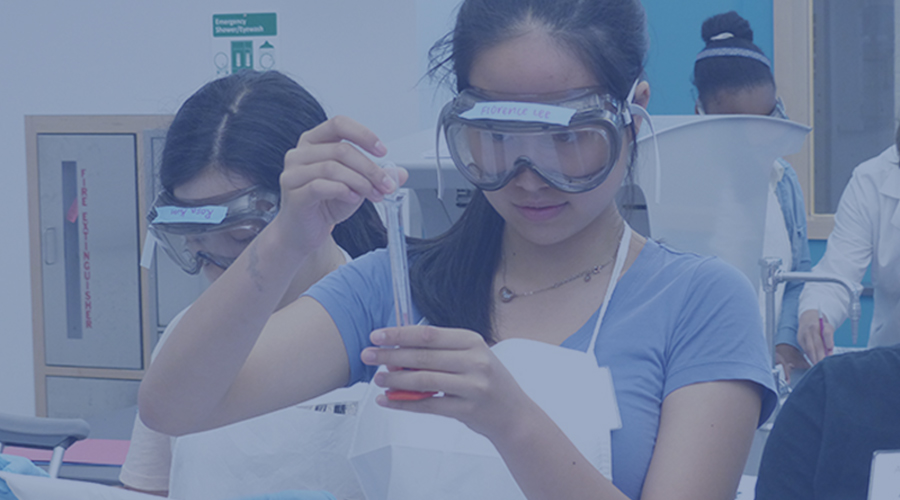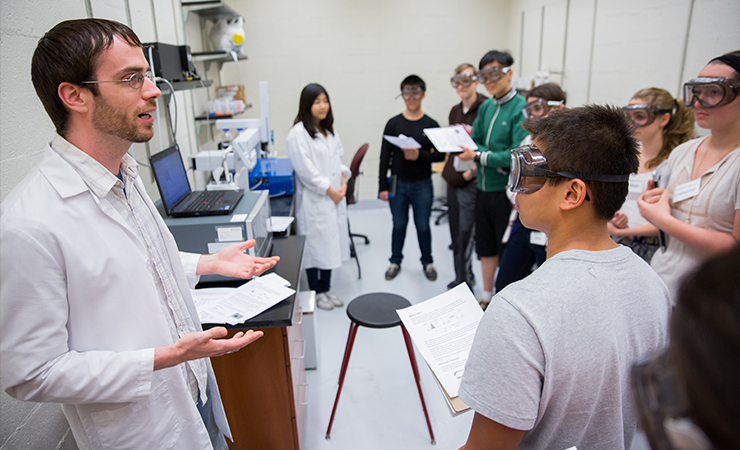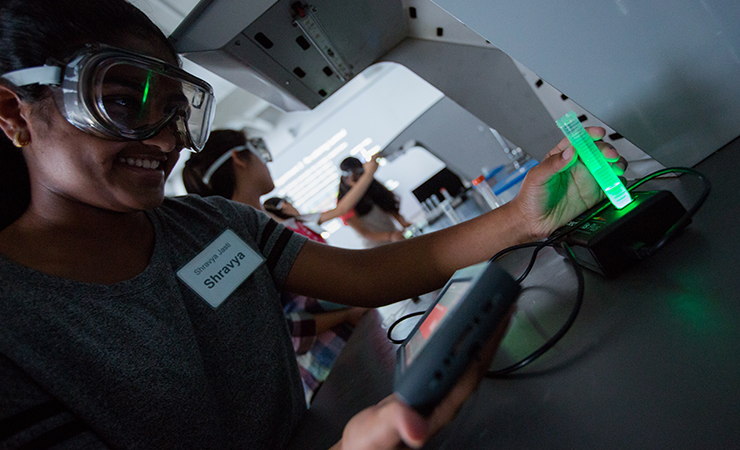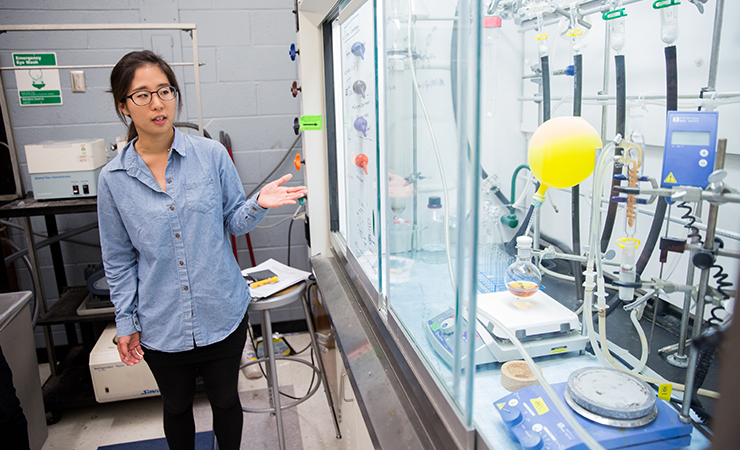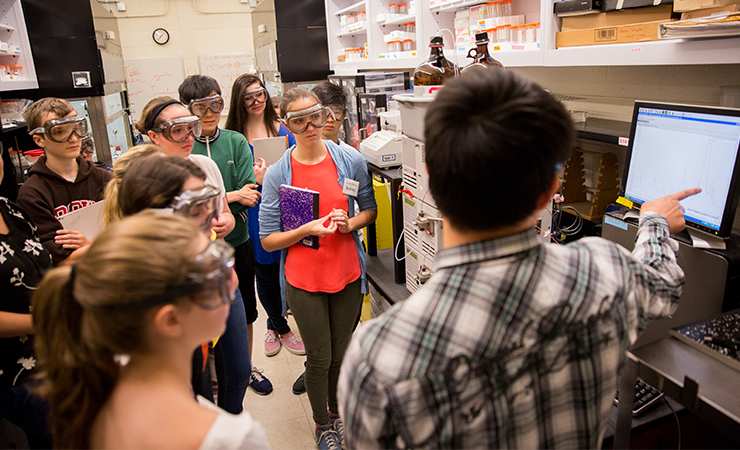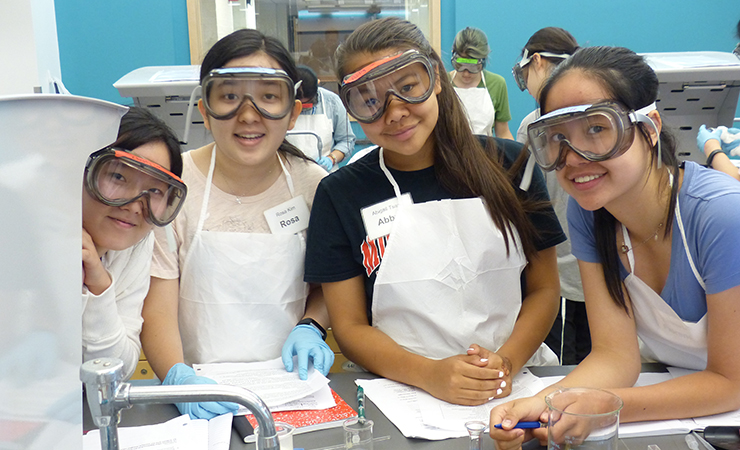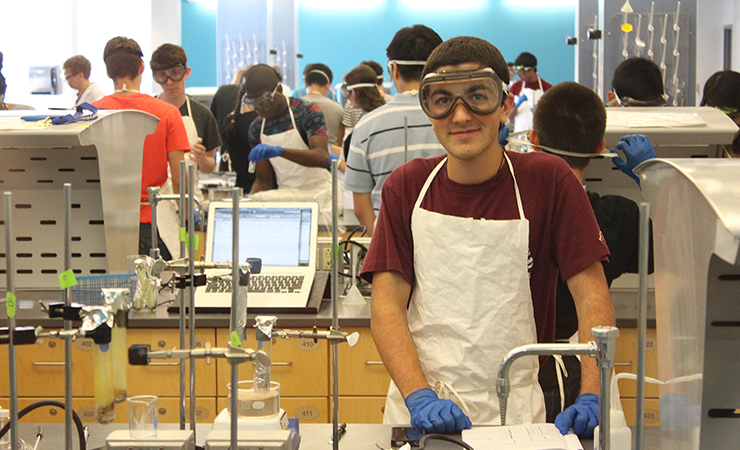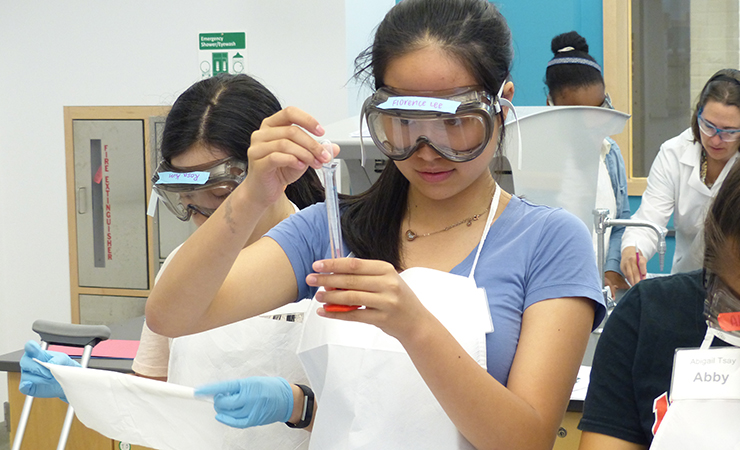Program dates: July 11 - August 1, 2026
-
Move-in: July 11
-
Orientation: July 12
- Move-out: August 1
Penn Chemistry is a leading center for molecular research and instruction, whose researchers are at the frontier of modern chemistry, tackling a wide variety of important societal challenges. The Chemistry Research Academy provides students with the foundational knowledge to understand this cutting-edge research, while providing opportunities to hear and learn directly from several of the research professors and students. The Chemistry Research Academy is fully residential with no commuter or online options.
Specific topics included in the Academy will be derived from departmental research goals. Below is a list of typical topics. Scroll to the Features section for more information.
- Hands-on laboratory experience (~50% of class time)
- Analytical techniques like spectroscopy and gas chromatography
- Optimization of synthetic methods using experimentation
- Open-ended laboratory challenges
- Research lectures (topics will vary)
- Introduction to nanoscale materials
- Chemical protein modification to study disease
- Chemistry of the rare earth metals
- Applications of coordination complexes
- Classroom learning
- Chemical bonding principles in organic and coordination chemistry
- Analytical techniques – why and how they work
- Materials science fundamentals and applications
- Tours (tour availability will vary)
- Science History Institute
- Singh Center for Nanomaterials
- Department research labs
- Skills for independent research
- Finding, using, and understanding research articles
- Capstone project including steps to begin an independent research project
Features
Meeting times: Monday – Friday. 6 instructional hours and a 1-hour lunch break each day. Homework will vary based on the day’s activities and will average no more than 1 hour/night of formal work.
Research: This is an instructional program where students build research skills and meet professors and students who are active in a broad range of chemistry-related research. The program does not involve placement into a research group.
In the lab: Approximately half of the instructional time involves students working in the chemistry lab. Here, students will learn about different types of chemical instrumentation while testing out their research skills using open-ended lab investigations. Collaboration and peer review activities allow students to deepen their understanding and skills throughout the program.
In the classroom: When not working in the lab, students will be engaged in learning via
- Topic lessons and interactive activities
- Large- and small-group discussions
- Presentations to peers
- Research lectures by professors or students
- Journal Clubs with research students
- Tours of research labs and spaces
Capstone project: Throughout the academy, students will be guided through a process to choose and plan their own independent research project using Penn’s extensive online resources. They will leave with a plan they can use for entering a science fair or for meeting their high school’s independent research requirements.
Download: 2025 Syllabus (PDF)
Prerequisites
The Chemistry Research Academy builds on the foundational topics typically learned in a first-year chemistry course. Students should have completed at least one year of high school chemistry before the program begins.
Technology Statement
Students are required to bring their laptops or tablets to the program for in-class work and must have administrative access to make changes to the computer system and install applications.
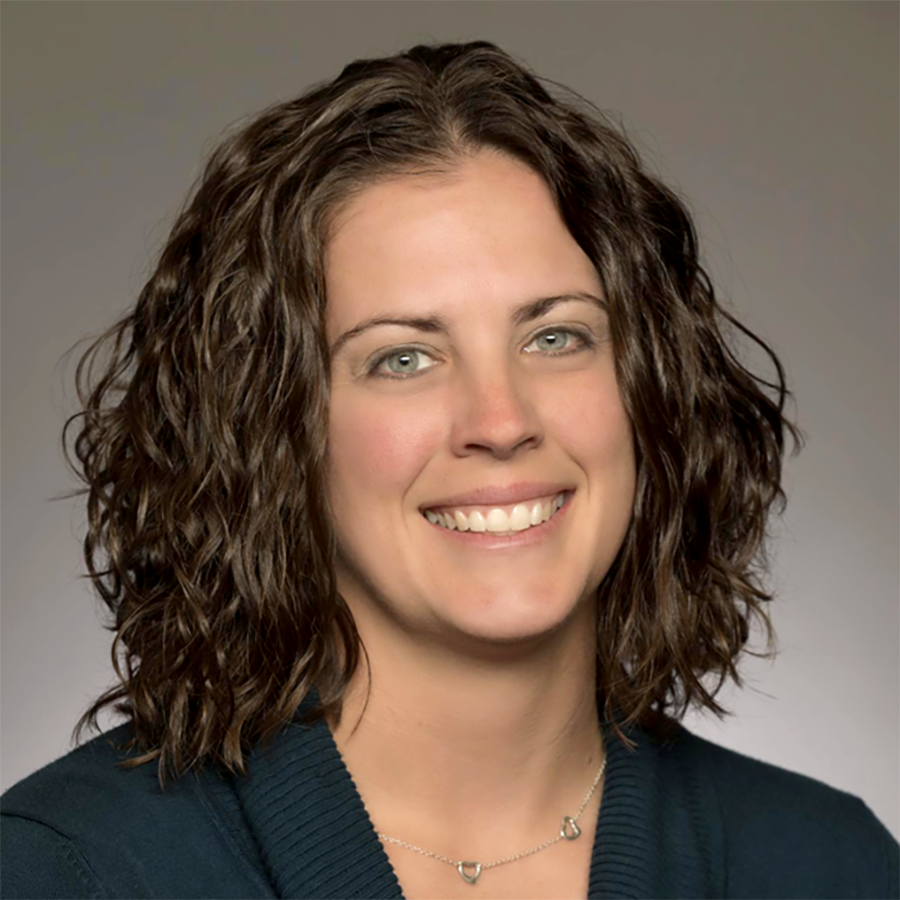
Program Director: Jenine Maeyer
Dr. Jenine Maeyer is a senior lecturer at the University of Pennsylvania and has served as the director of the general chemistry laboratories since 2009. She earned undergraduate degrees in chemistry and mathematics from the College of William and Mary and a PhD in chemistry with a research focus in chemistry education and a minor in teaching and teacher education from the University of Arizona. In addition to teaching the general chemistry laboratory courses, she has also run middle and high school outreach programs and teaching assistant training within the Chemistry Department.
